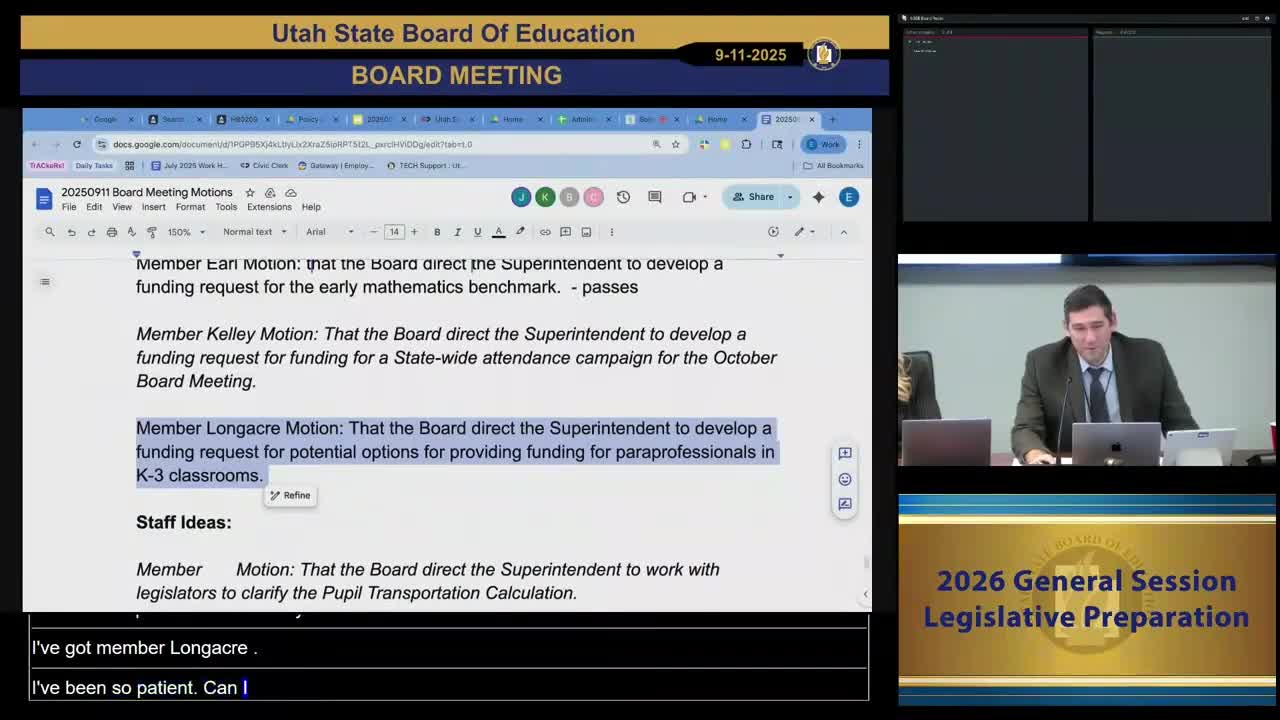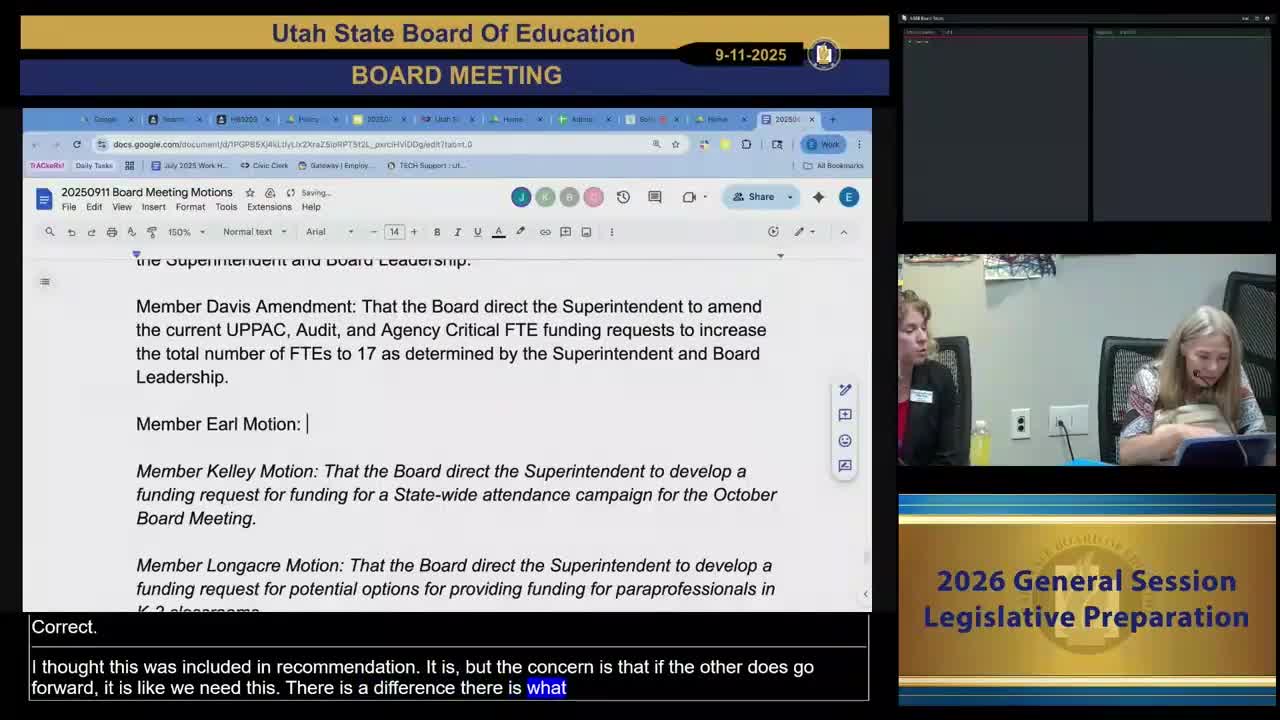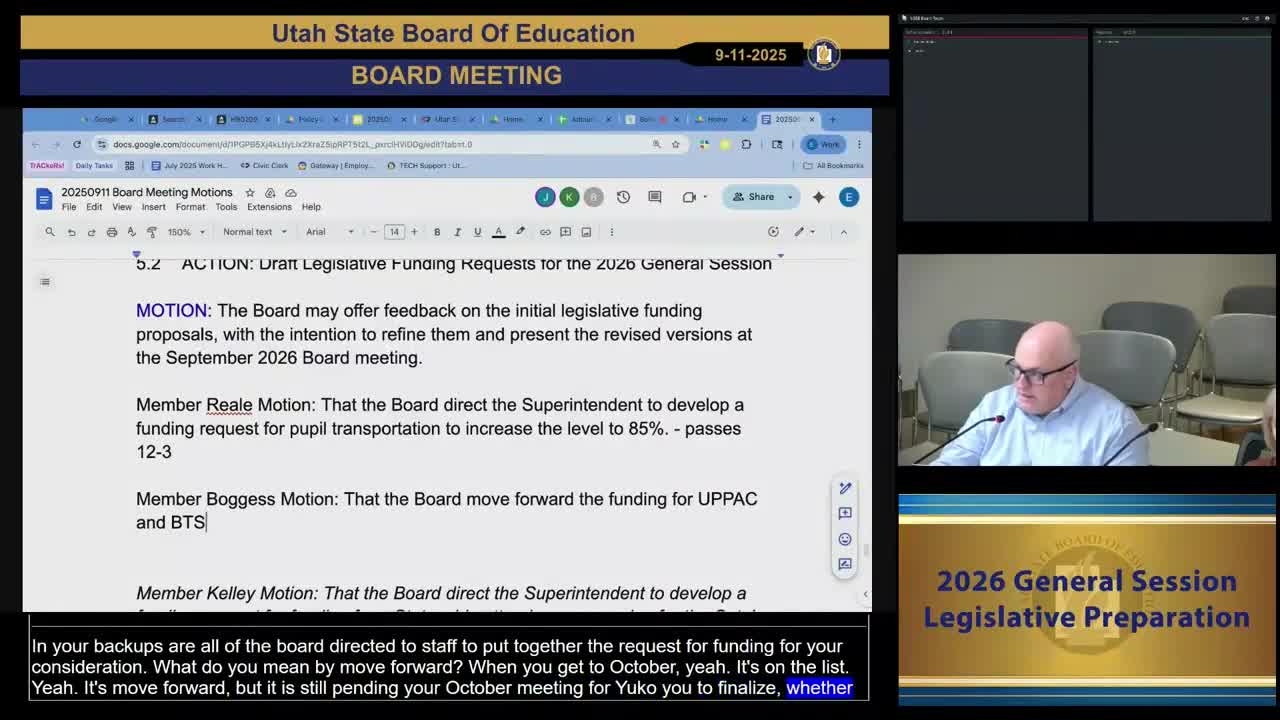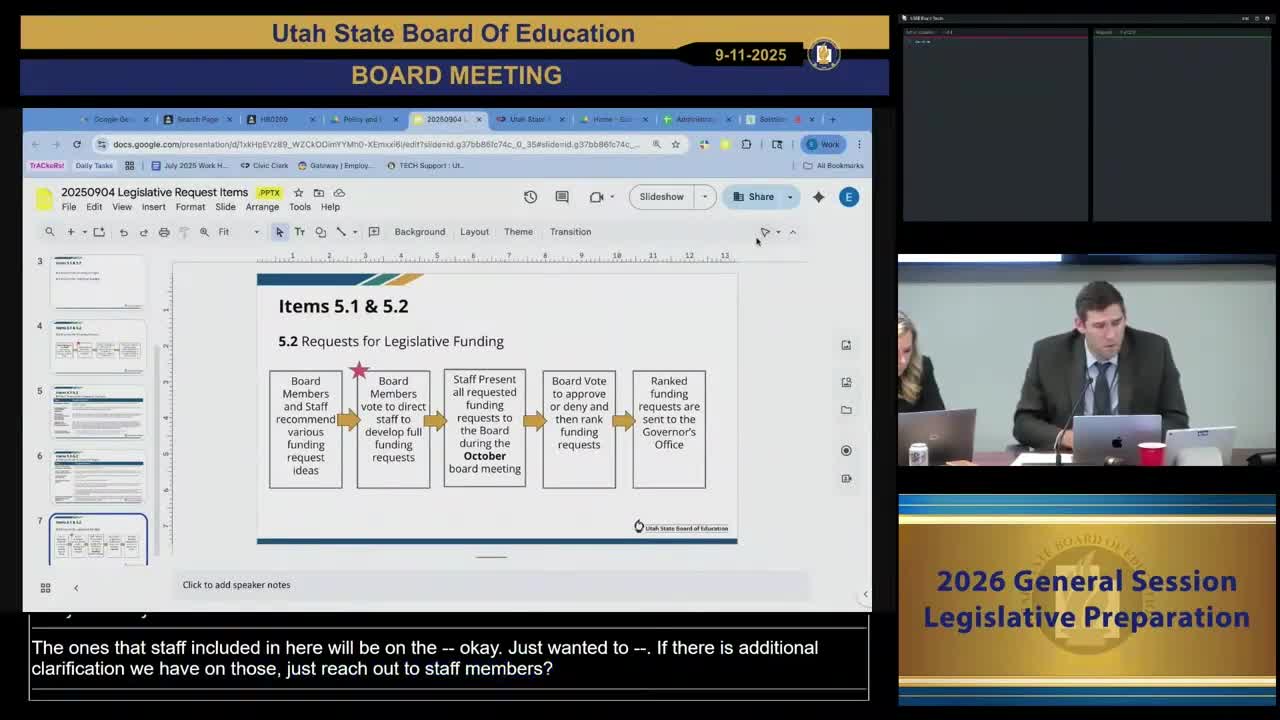Article not found
This article is no longer available. But don't worry—we've gathered other articles that discuss the same topic.

Board asks superintendent to develop funding options for paraprofessionals in K‑3 classrooms

Board asks superintendent to develop early mathematics benchmark assessment funding request

Board approves expanding UPAK, audit and agency FTE requests after members describe hotline backlog

